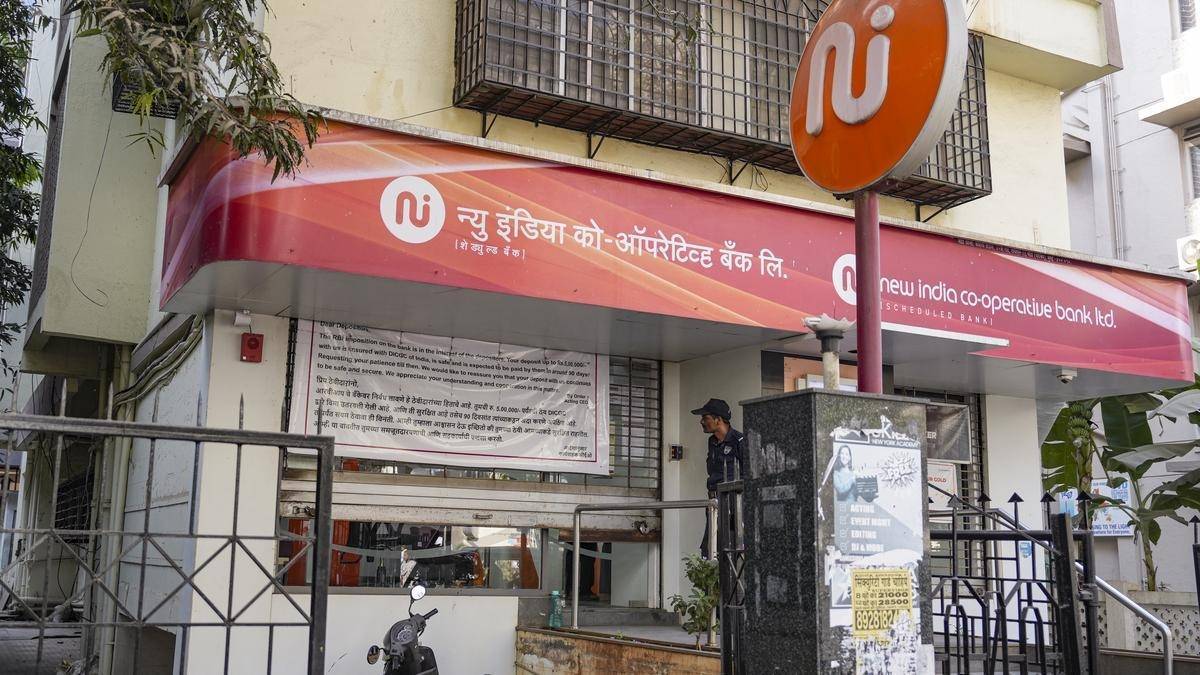The Reserve Bank of India (RBI) has found financial irregularities amounting to ₹122 crore at New India Cooperative Bank in Mumbai, leading to multiple arrests and an ongoing investigation. In response, the RBI has imposed strict withdrawal limits, leaving depositors worried about their savings. The Economic Offences Wing (EOW) of the Mumbai Police is handling the case, while the RBI has taken measures to prevent further financial risks.
On February 12, 2025, RBI officials conducted a routine inspection at the bank’s Prabhadevi and Goregaon branches. During the audit, they found a discrepancy of Rs 112 crore missing from the Prabhadevi branch and Rs 10 crore from the Goregaon branch. Further inquiries traced the missing funds to Hitesh Mehta, the bank’s former General Manager and Head of Accounts. Mehta is suspected of embezzling the money over six years, from 2019 to 2025, taking advantage of weak financial controls and internal oversight.
During questioning, Mehta admitted to taking cash from the bank’s safes and handing it over to Dharmesh Paun, a real estate developer. Paun allegedly facilitated the laundering of these funds through his company. Investigators believe the misappropriated money was routed through multiple transactions, making it difficult to trace. Mehta and Paun have been arrested, while another suspect, Unnanathan Arunachalam, is still at large and under investigation for his possible involvement in the fraud. Authorities are working to determine if additional individuals within the bank were complicit in the misappropriation of funds.
The fraud was detected when RBI officials noticed inconsistencies between the physical cash reserves and the bank’s recorded balances. Upon further scrutiny, Mehta confessed and led investigators to various locations where some of the stolen funds had been hidden. He voluntarily returned Rs 50 lakh and claimed he would arrange to return more. His confession was video-recorded and is being used as evidence in the case. A formal complaint was registered at the Dadar police station, and the case was subsequently transferred to the Economic Offences Wing (EOW) of the Mumbai Police for a detailed investigation.
An FIR has been filed against Mehta and Paun under the Bharatiya Nyaya Sanhita (BNS). The charges include Section 316(5), which pertains to criminal breach of trust by a banker, merchant, or agent, and Section 61(2), which deals with criminal conspiracy. Investigators are currently analyzing financial records and tracing transactions to understand how the fraud was executed and to recover as much of the missing money as possible.
In response to the fraud, the RBI imposed strict restrictions on New India Cooperative Bank, effective February 13, 2025. These measures include a complete ban on issuing new loans and making fresh investments or borrowing funds. Additionally, the RBI has imposed a six-month freeze on withdrawals to prevent further financial instability. Recognizing the severity of the governance failures, the RBI also superseded the bank’s board of directors for a period of 12 months. To manage the bank’s affairs, Shreekant, a former Chief General Manager of the State Bank of India, has been appointed as the administrator. He will be supported by a committee of advisors. During this period, the bank is prohibited from granting or renewing loans, making new investments, incurring liabilities, or disbursing payments without prior approval from the RBI.
The withdrawal restrictions have caused significant distress among depositors, many of whom rely on their accounts for daily financial needs. The inability to access funds has led to widespread concerns, particularly among elderly customers and small business owners. In light of these difficulties, the RBI is evaluating whether to allow limited withdrawals for urgent financial needs, such as medical emergencies. Depositors are advised to stay updated through official announcements and bank notifications regarding potential relief measures.
As of March 2024, New India Cooperative Bank operated 30 branches and had a total deposit base of Rs 2,436 crore. Despite its large deposit base, the bank has been facing financial difficulties for the past few years. It reported a loss of Rs 22.78 crore in the 2023-24 fiscal year and Rs 30.74 crore in the 2022-23 fiscal year. These consecutive losses indicate ongoing financial instability, which may have contributed to lapses in internal controls, allowing fraudulent activities to go undetected for an extended period.
This case draws comparisons to the 2019 Punjab and Maharashtra Cooperative (PMC) Bank crisis, where fraudulent loans led to severe restrictions on depositor withdrawals. PMC Bank had unlawfully sanctioned around 73% of its loans to Housing Development Infrastructure Ltd (HDIL) while concealing non-performing assets from the RBI. The fraudulent scheme at PMC Bank eventually led to multiple arrests, including those of senior bank officials. The New India Cooperative Bank case raises similar concerns about governance failures in cooperative banks and the need for stricter regulatory oversight.
Authorities are continuing their investigation to trace the stolen funds and determine the full extent of the fraud. The RBI’s primary objective remains ensuring financial stability and protecting depositors’ interests. If necessary, the central bank may consider restructuring or merging New India Cooperative Bank with a more stable financial institution to restore depositor confidence. Meanwhile, investigators are focused on recovering the embezzled funds and holding those responsible accountable.
Depositors must stay informed through official RBI updates and bank notifications regarding any developments in the case. While restrictions remain in place, the possibility of gradual withdrawal relief measures will depend on the progress of fund recovery and the bank’s financial situation.
Image source- indiatv.in









.png)